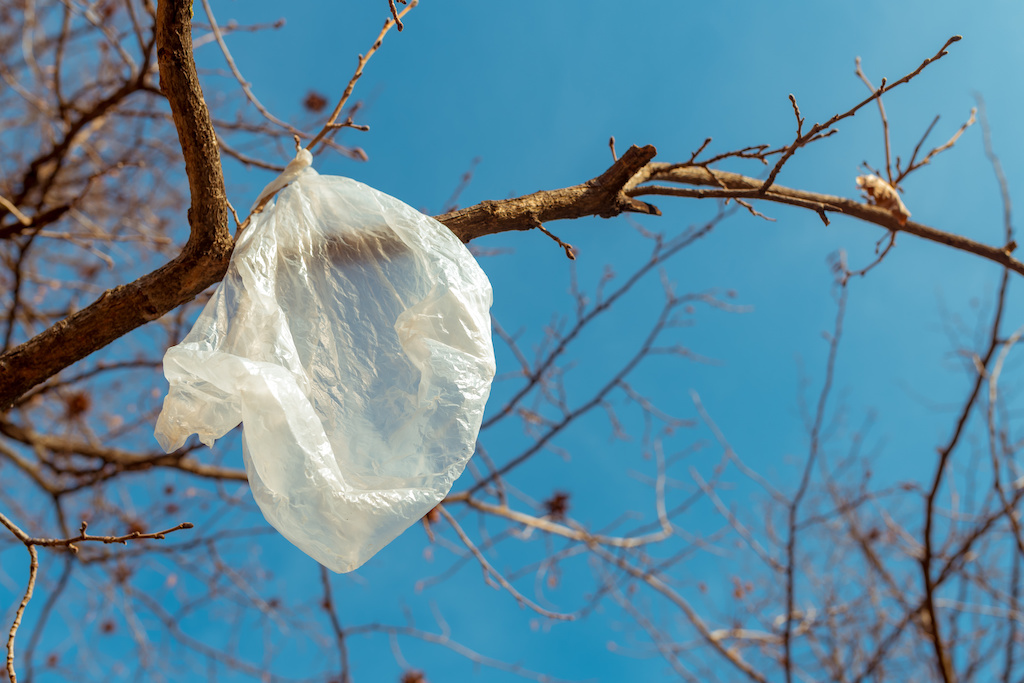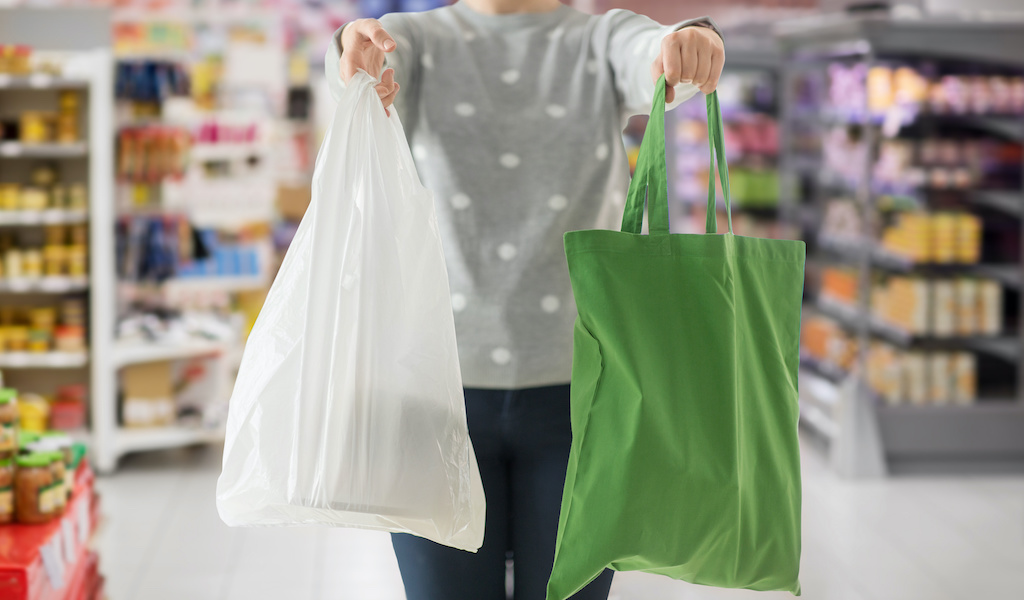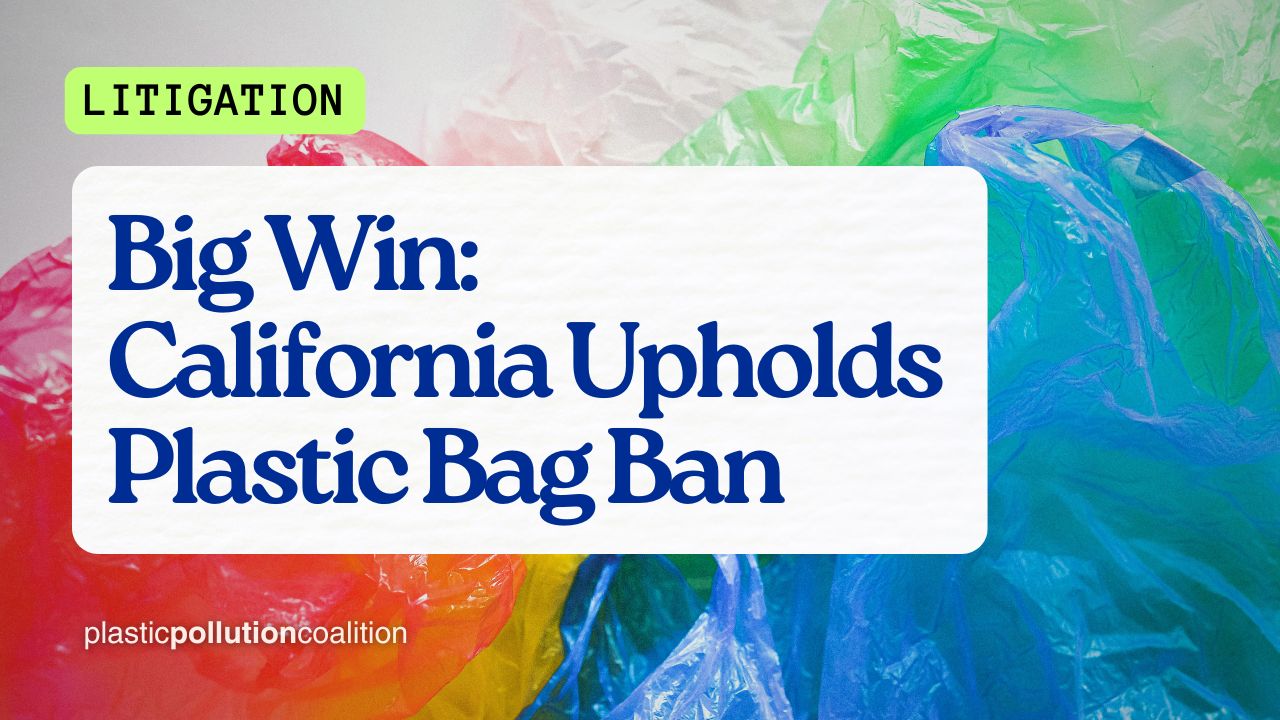A major legal win has closed longstanding loopholes in California’s plastic bag ban after advocates, including Plastic Pollution Coalition and The Last Beach Cleanup, pushed for accountability for more than a decade. On October 17, 2025, Attorney General Rob Bonta announced a settlement between California and four large plastic bag manufacturers, requiring the companies stop selling single-use plastic bags in the state and pay $1.7 million in penalties for falsely claiming their products were recyclable.
We are grateful for Attorney General Rob Bonta’s continued leadership and resolve to hold corporations accountable for the damage they cause, starting with the illegal labeling and marketing of the fraud of ‘recyclable’ labels for plastic bags and packaging. We hope this settlement sends a clear message to other plastic producers that policymakers and the public will no longer tolerate their harmful and false narrative around plastics recycling. Plastic was never designed to be recycle.
— Jackie Nuñez, Advocacy & Engagement Manager, Plastic Pollution Coalition
Although California banned single-use plastic bags in 2014, and voters upheld that ban with Prop 67 in 2016, some plastic bag manufacturers exploited loopholes in the law enabling them to continue to violate the ban for years. Prop 67 allowed exceptions in California’s plastic bag ban for thicker “reusable” plastic bags and those labeled “recyclable in the state.” Several plastic bag manufacturers falsely claimed that their thicker bags met those criteria and misled shoppers by labeling single-use plastic bags with the chasing arrows symbol, suggesting recyclability. This despite the fact that they could not prove that California recycling facilities are actually capable of accepting and recycling any of these plastic bags.
Governor Newsom had already passed “fix-it” bill SB 1053 last year in an attempt to phase out these thicker bags and close the bag ban loopholes at the start of 2026. However, this settlement not only expedites the necessary closure of loopholes in the state’s bag ban, but also requires the companies to return profits from bag sales and pay additional penalties to the tune of $1.1 million in civil penalties and $636,250 in attorney fees and costs.
Meanwhile, three other large plastic bag producers declined to settle, so Attorney General Bonta announced a lawsuit on Friday to hold them accountable for continuing to violate state law by selling plastic bags.
Holding Plastic Polluters Accountable

Plastic Pollution Coalition and The Last Beach Cleanup have long advocated for upholding California’s existing plastic reduction policies, leading sign-on letters with the support of allied organizations. Together, we sent a letter urging Governor Newsom and Attorney General Bonta to hold manufacturers accountable to existing labeling laws on plastic bags and film, and to end the distribution of thicker plastic bags. In 2023, our “oppose unless amended” letter helped stop an amendment to SB 777 that would have required storefronts to install drop-off bins for plastic bag and film recycling—a move that would have further promoted false recyclability claims and prolonged the store drop-off charade. In reality, most plastic bags, like all plastic—whether they are single-use or “reusable”—end up in landfills, exported to other countries to be burned, or pollute the environment.
One of the key motivations for the initial ban was protecting California’s coasts and waterways from plastic pollution. Single-use plastic bags do not simply disappear, but break up into microplastics. These tiny plastic particles harm the oceans and all of Earth’s ecosystems, plants, and animals, including humans. Plastic particles are found throughout the human body, including in the brain, heart, blood, and reproductive organs, and have been linked to serious health problems including cancer, heart disease, infertility, and neurodegenerative illnesses such as Alzheimer’s and Parkinson’s diseases. Research has shown that bans on single-use plastic bags can help reduce local plastic pollution.
On a positive note, reusable produce and shopping bags are increasingly gaining traction as a key plastic-free alternative. And while this legal win marks a major step forward in California, some plastic bags will still remain in use. SB 1053 still allows very thin “compostable” bags, commonly used in supermarkets for meat and produce. Plastic bags in retail stores that do not sell food are also still permitted. What’s more, many products, including foods, are still packaged in single-use plastic wrappers falsely labeled as recyclable.
There are hundreds of plastic bags & films labeled with the false How2Recycle Store Dropoff label, most notably Nature Valley Granola Bars. Product companies must immediately remove these lying labels that have fooled consumers for years.
— Jan Dell, Independent Engineer, The Last Beach Cleanup
Take Action

This settlement is a major victory for communities, ecosystems, and public health. Plastic producers are being held accountable for misleading recyclability claims, setting an important precedent for enforcing truth in labeling and moving toward genuine plastic reduction. Fewer bags produced means less plastic ending up in our environment and harming our health.
Yet, while local, state, and national policies help reduce plastic pollution locally, we need global laws on the books to make a swift and significant impact around the world. Urge world leaders to push for a strong Global Plastics Treaty that cuts and caps plastic production and supports the plastic-free reuse and refill solutions we need.

